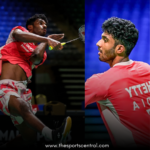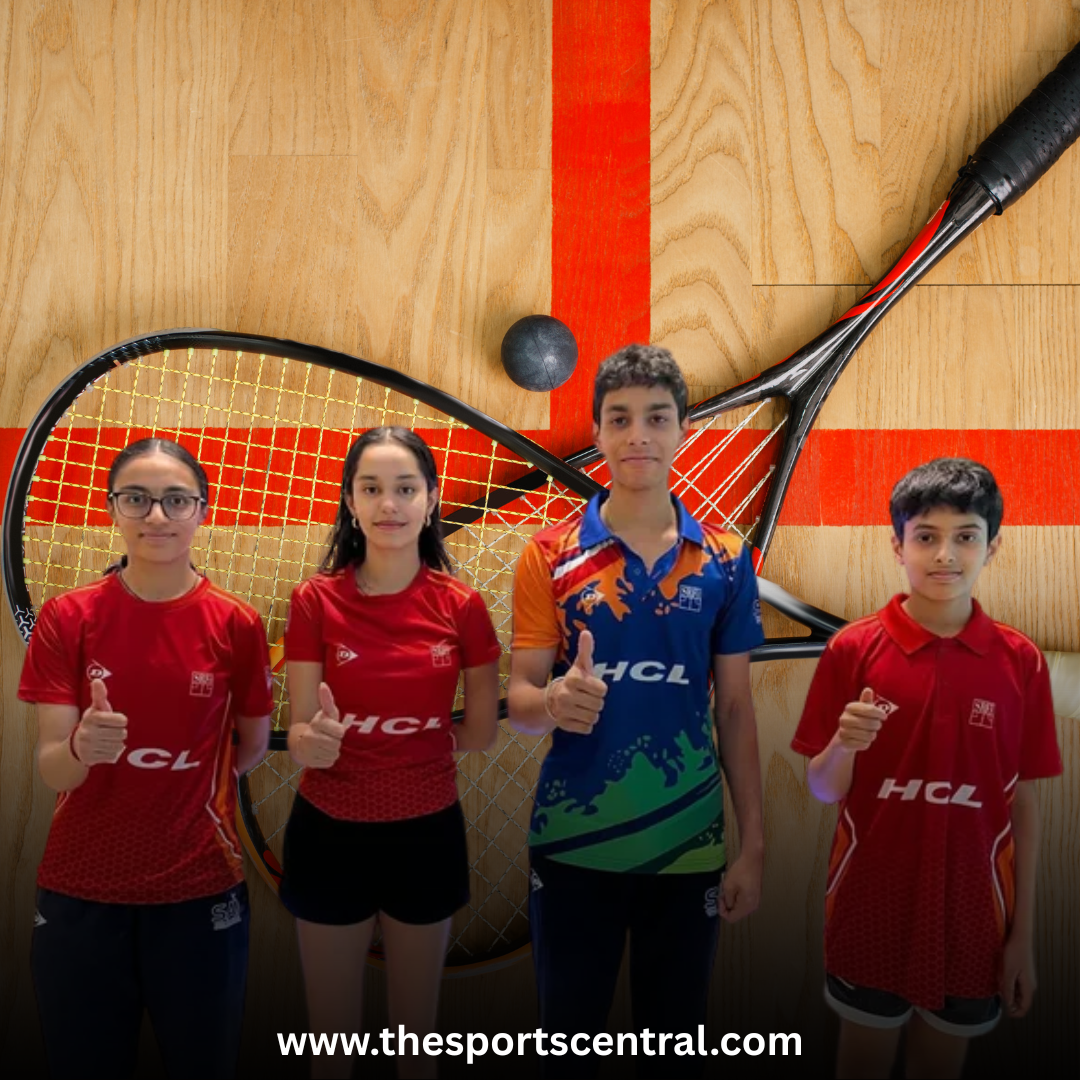The International Blind Sports Federation (IBSA) recently held a pivotal meeting that brought together its administration team and newly selected sports committee chairpersons. The focus was on fostering collaboration, planning for the future, and advancing IBSA’s mission of promoting sports for athletes with visual impairments. This meeting marked a significant step toward aligning the organization’s strategies with its goals of excellence, inclusion, and athlete empowerment.
Key Participants in the Meeting
The meeting convened a diverse group of individuals integral to the planning and execution of IBSA’s objectives:
IBSA Administration:
- Rufat Hajili – Executive Director
- Mariano Travaglino – Sports Manager
- Jane D Blaine – Classification Manager
- Juliana Soares – Head of Anti-Doping
- Anca Chereches and Elisabeta Vuscan – Administrative Assistants
- Narmin Zarbaliyeva – Finance Manager
- Azar Tapdigov – Interim Media Manager
Sports Committee Chairpersons:
- Goalball – Michael Dennis
- Para Judo – Janos Tardos
- Blind Football – Fabio Vasconcelos
- Chess – Sorin Lapadatu
- Showdown – Zdenek Barlok
- Powerlifting – Tinatin Revazashvilli
- Ninepin Bowling – Ruza Markesic
These individuals represent the core leadership tasked with driving IBSA’s sports initiatives forward.
Opening Remarks and Vision Setting
The meeting began with a message from IBSA President Ilgar Rahimov, delivered by Executive Director Rufat Hajili. President Rahimov emphasized the organization’s commitment to fostering excellence and inclusion in sports for athletes with visual impairments. He articulated the following key objectives:
- Elevating the quality of IBSA’s sports programs.
- Expanding opportunities for athlete participation globally.
- Strengthening partnerships with stakeholders to enhance visibility and support.
His address set the tone for a collaborative and purpose-driven meeting, inspiring all participants to focus on achieving these objectives.
Presentation by Sports Manager Mariano Travaglino
IBSA Sports Manager Mariano Travaglino delivered a comprehensive presentation that outlined the roles, responsibilities, and strategies for each committee. His presentation covered the following key areas:
1. Roles and Responsibilities
- Ensuring alignment with IBSA’s mission and values.
- Establishing clear objectives for each sports discipline.
- Supporting national federations and local organizations in implementing IBSA’s initiatives.
2. Goals for Upcoming Events
- Preparing for major international competitions, including world championships and regional qualifiers.
- Enhancing organizational efficiency for events to provide a seamless experience for athletes and spectators.
3. Expanding Athlete Participation
- Increasing outreach to underrepresented regions and countries.
- Encouraging collaboration with grassroots organizations to identify and nurture new talent.
4. Enhancing Visibility
- Leveraging media and technology to showcase athletes’ achievements.
- Building partnerships with sponsors and stakeholders to secure financial and logistical support.
Committee Chairpersons: Ideas and Proposals
Each sports committee chairperson contributed to the discussions, sharing their unique perspectives and plans to advance their respective disciplines. These presentations highlighted innovative ideas aimed at improving athlete engagement, competitive structures, and partnerships.
Goalball: Michael Dennis
Michael Dennis proposed enhancing the competitive structure of Goalball by introducing more regional tournaments, thereby providing athletes with increased opportunities to compete and gain international exposure. He also emphasized the need for advanced training programs to improve the performance of athletes at all levels.
Para Judo: Janos Tardos
Janos Tardos discussed strategies for improving athlete safety and performance, including the implementation of specialized training camps. He also highlighted the importance of recruiting more coaches trained in working with visually impaired athletes to ensure consistent development.
Blind Football: Fabio Vasconcelos
Fabio Vasconcelos focused on increasing the popularity of Blind Football by hosting demonstration matches in countries where the sport is not yet established. He also proposed strengthening partnerships with national football federations to secure funding and resources.
Chess: Sorin Lapadatu
Sorin Lapadatu proposed integrating technology into chess competitions to make the game more accessible to visually impaired players. He suggested creating a digital platform for remote tournaments, enabling players from different regions to compete without the need for travel.
Showdown: Zdenek Barlok
Zdenek Barlok highlighted the potential of Showdown as an emerging sport. He proposed initiatives to raise awareness about the game through workshops and exhibitions. Expanding the sport’s reach to schools and community centers was also a key focus.
Powerlifting: Tinatin Revazashvilli
Tinatin Revazashvilli emphasized the importance of inclusivity in Powerlifting, proposing adaptive training programs tailored to athletes with varying levels of ability. She also suggested collaborating with local gyms to provide better facilities for training.
Ninepin Bowling: Ruza Markesic
Ruza Markesic outlined plans to revive interest in Ninepin Bowling by organizing international tournaments with high visibility. She also proposed hosting “learn-to-play” sessions to attract newcomers to the sport.
Key Discussions and Outcomes
The discussions among the administration and committee members revolved around actionable strategies to advance IBSA’s mission. Key outcomes included:
1. Improved Athlete Engagement
Participants agreed on the need for more inclusive programs to encourage athlete participation. Initiatives such as talent identification camps and scholarships for young athletes were highlighted as priority actions.
2. Enhanced Competitive Structures
Standardizing competition formats across regions was identified as a critical step toward ensuring fairness and consistency. The committees committed to revising rules and regulations to align with international standards.
3. Stronger Partnerships
Building robust relationships with national federations, sponsors, and local organizations was seen as essential to achieving IBSA’s goals. A joint task force was proposed to streamline partnership efforts.
4. Focus on Anti-Doping
Head of Anti-Doping Juliana Soares emphasized the importance of maintaining the integrity of IBSA sports. She proposed stricter testing protocols and educational workshops for athletes and coaches to prevent doping violations.
Media and Visibility
Interim Media Manager Azar Tapdigov outlined strategies for increasing the visibility of IBSA’s sports programs:
- Utilizing social media platforms to share athlete stories and event highlights.
- Collaborating with broadcasters to televise major competitions.
- Developing multilingual content to reach a broader audience.
The importance of showcasing the achievements of visually impaired athletes was underscored as a means to inspire and motivate others.
Financial Planning
Finance Manager Narmin Zarbaliyeva presented a detailed budget proposal to support IBSA’s initiatives. Key points included:
- Allocating funds for athlete development programs.
- Securing sponsorship deals to offset operational costs.
- Establishing a reserve fund to ensure financial stability during unforeseen circumstances.
Her meticulous approach ensured that all planned initiatives were financially viable.
Conclusion and Next Steps
The meeting concluded with a renewed sense of purpose and determination. Executive Director Rufat Hajili emphasized the importance of collaboration and expressed confidence in the abilities of the committees to deliver on IBSA’s objectives. He outlined the following next steps:
- Finalizing the strategic plan for 2024-2025 based on the discussions.
- Organizing follow-up meetings to track progress and address challenges.
- Launching a public awareness campaign to highlight IBSA’s initiatives and goals.
Impact and Future Outlook
This meeting marks a significant milestone in IBSA’s journey to promote sports for athletes with visual impairments. By aligning the efforts of its administration and sports committees, the organization is poised to achieve greater success in the coming years. The collaborative strategies discussed during the meeting will not only elevate IBSA’s sports programs but also create new opportunities for athletes worldwide.
Through its commitment to inclusion, excellence, and innovation, IBSA continues to set a benchmark for sports organizations globally. With the collective efforts of its dedicated team, the future of inclusive sports looks brighter than ever.










